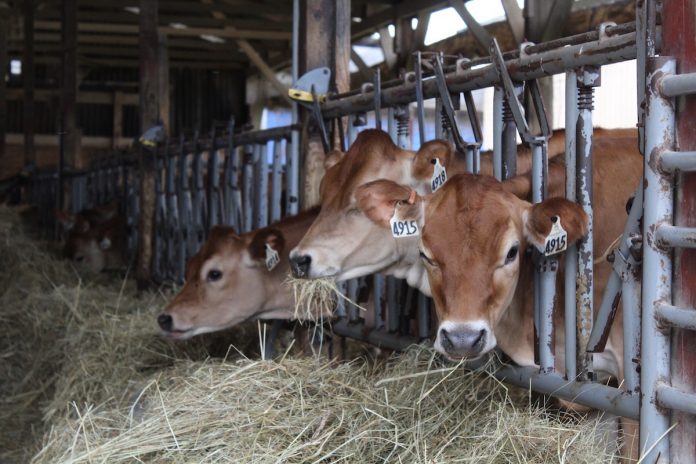
A few years after launching its first line of so-called A2A2 milk, thought by some to be easier to digest, the Franklin County company is going all in. Each of the dairies it works with has fully transitioned its herd to cattle with the A2A2 gene.
It won’t change the taste or the nutritional value of the product, but it could draw in new customers who in the past have experienced digestive discomfort after drinking milk.
“We started getting testimony where A2A2 milk really made a difference. We’ve been reading some science, and we believed it,” said David Bower, co-owner of Homestead Creamery and the owner of a dairy that provides some of its milk.
A decline in milk consumption — USDA data show per capita fluid milk consumption at 247 pounds in 1975, compared to 141 pounds in 2019 — coupled with the growing popularity of alternatives like almond or oat milk, were factors in the decision to move in this direction, said Kasey Kohl, Homestead Creamery’s president.
The hope is that A2A2 milk will help in “bringing people back to the dairy aisle,” said Rose Jeter, the creamery’s marketing director.
Cow’s milk generally contains two types of beta-casein proteins: A1 and A2. Some cows have one type, while others have a mix of the two. A2A2 milk comes from cows that naturally produce only the A2 protein, said Chad Dechow, associate professor of dairy cattle genetics at Penn State.
“When the proteins are digested, it is thought that there’s a small peptide cleaved off of the A1 variant that causes intestinal discomfort,” Dechow said. It’s the result of a mutation in the gene and therefore does not occur in the A2 variant.
While some people might think they have lactose intolerance, he said, their discomfort with milk might actually stem from an intolerance to the A1 beta-casein.
Research on the subject is limited, and Dechow said some blind trials have shown a small effect, while others have not. He expects more studies to come out in the next year or two.
“It is still a little bit uncertain as to the magnitude, but it does appear that in some people there’s at least a small effect,” Dechow said.
One small study published in 2016 supported the benefits attributed to milk containing the A2 beta-casein; it was funded by The a2 Milk Company in New Zealand.
Dechow said interest is growing among researchers and producers.
“Anything that producers can do to try to distinguish themselves to have a marketing advantage, they’re going to try,” he said.
Dechow predicted that A2A2 milk would eventually shift from a niche product to the norm. But that will take time. He did note that the frequency of bulls with the A2A2 gene has been growing, and the majority of Holstein bulls are now A2A2. The prevalence of the A2A2 gene varies by breed.























